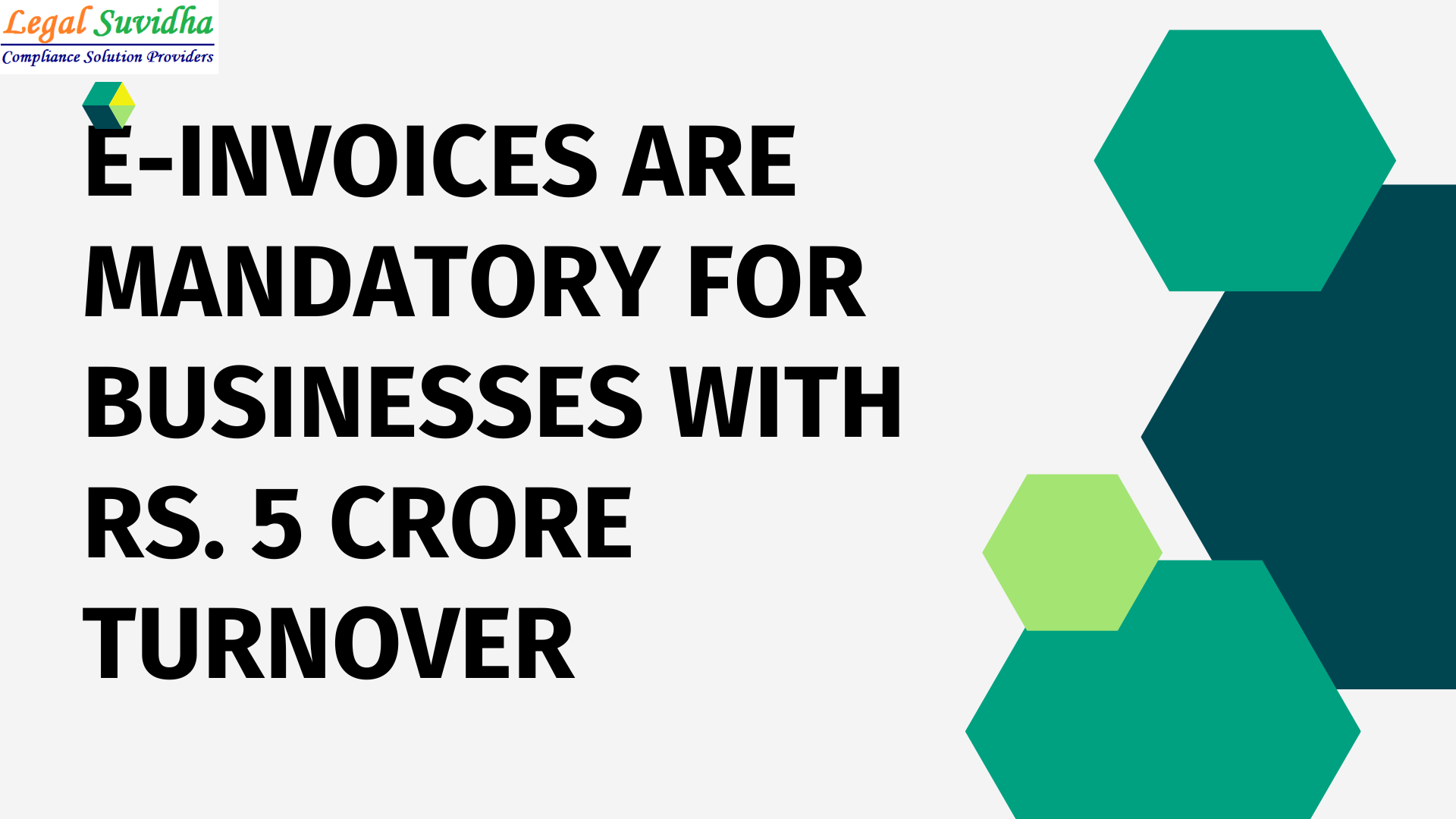E-INVOICES ARE MANDATORY FOR BUSINESSES WITH A TURNOVER OF RS.5 CRORE
E-Invoicing/E-Invoice is a form of electronic billing which is increasingly mandated by Governments across the World due to tax evasion. In India, the Government introduced e-invoicing in mid of the financial year 2020 with businesses having aggregate turnover above Rs. 500 Crore. The limit of Rs. 500 Crore turned to Rs. 100 Crore from 1st January 2021 then to Rs. 50 Crore from 1st April 2021 and now it is Rs. 20 Crore from 1st April 2022.
Interestingly, if the turnover in any of the financial years from 2017-18 till now crosses the aggregate turnover limit then e-invoicing is applicable.
As per Rule 48(4) of the CGST Rules, 2017, an e-invoice is required to be prepared by the taxpayer by uploading the specified particulars in FORM GST INV-01 on the Invoice Registration Portal (IRP) and obtain the Invoice Reference Number (IRN).
A. E-invoicing shall not be applicable to the following categories of registered persons irrespective of the turnover: An insurance or a banking company or a financial institution, including an NBFC A SEZ unit A Goods Transport Agency (GTA) A registered person supplying passenger transportation services A registered person supplying services by way of admission to the exhibition of cinematographic films in multiplex cinema Government department and local authority
A. E-invoicing shall not be applicable to the following categories of registered persons irrespective of the turnover:
- An insurance or a banking company or a financial institution, including an NBFC
- A SEZ unit
- A Goods Transport Agency (GTA)
- A registered person supplying passenger transportation services
- A registered person supplying services by way of admission to the exhibition of cinematographic films in multiplex cinema
- Government departments and local authority.
Businesses with annual turnover of over Rs. 5 crore will have to move to e-invoicing under goods and services tax (GST) from January 1. The GST Network has asked its technology providers to make the portal ready to handle the increased capacity by December, a government official privy to the development said. The official said the target is to bring all businesses with turnover above Rs. 1 crore under this framework by next fiscal year, which will further plug revenue leakages and improve compliance.
The GST Council had decided to implement electronic invoice in a phased manner. The aim is to bring all the small businesses under the formal economy.
“As per the GST Council recommendation, e-invoicing will become mandatory for businesses over Rs. 5 crore turnover from January 1,”
E-invoicing uses a standardized format that a machine can read. It would help in syncing sales data of a small business vendor and large corporate clients, which is used to claim tax credit. This, the official said, would help in swift detection of false ITC claims, broaden GST base and improve compliance. From October 1, businesses having aggregate annual turnover of Rs 10 crore and above have moved to e-invoicing for business-to-business (B2B) transactions.
E-invoicing for B2B transactions was first made compulsory for companies with a turnover of Rs. 500 crores from October 1, 2020. This threshold was then lowered to businesses with turnover of Rs. 100 crore from January 1, 2021 onwards, and again was revised to companies having a turnover of Rs. 50 crore from April 1, 2021. From April 2022, it was extended to businesses with turnover above Rs. 20 crore







